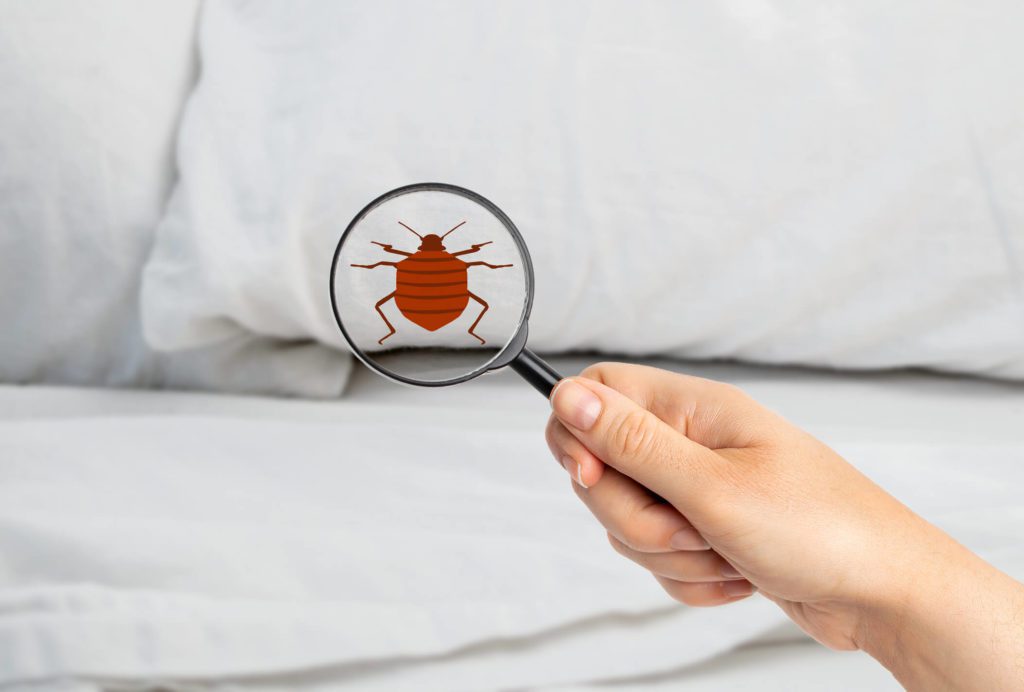Kinds of Insect Control: Which Technique Is Right for Your Invasion?
When faced with an insect infestation, the choice of a proper technique for bug control is essential in successfully handling the scenario. From chemical therapies to organic services, there exists a range of strategies that can be employed to resolve different sorts of pests. Each approach features its very own collection of factors to consider and advantages, making the decision-making procedure a nuanced one. Recognizing the nuances of each technique and assessing their compatibility with the particular insect problem handy is important for achieving long-term success in bug management. By checking out the different sorts of pest control methods readily available, people can make educated decisions tailored to their special situations, making certain a much more lasting and reliable outcome in parasite removal.
Chemical Bug Control
Chemical parasite control involves making use of synthetic or naturally obtained chemicals to manage and eliminate pest populaces properly. This approach is typically utilized in farming, forestry, and household settings to battle a variety of parasites, including rodents, weeds, and insects. Using chemical pesticides can give quick and targeted services to pest infestations, making it a prominent selection for lots of people and services.
Among the essential advantages of chemical insect control is its ability to promptly get rid of bugs, reducing the threat of damages to plants, building, and human wellness. By using specific chemicals that target certain pests, this technique can efficiently manage invasions while decreasing damage to beneficial organisms and the environment when used properly.
However, making use of chemical parasite control additionally increases worries about prospective unfavorable effects on non-target varieties, water resources, and human wellness. It is essential to follow safety standards, use chemicals sensibly, and think about different bug control techniques to lessen these dangers and make certain lasting insect management practices.
Organic Insect Control
Organic bug control, also referred to as biocontrol, utilizes living organisms to decrease and manage insect populations normally. This approach harnesses the power of nature to control parasites without the demand for synthetic chemicals. Biocontrol can involve the intro of all-natural opponents of the pest types, such as parasites, predators, or pathogens, to reduce bug populaces. By using the bug's natural killers or microorganisms, organic insect control provides a eco pleasant and sustainable solution to pest monitoring.

Mechanical Pest Control
Utilizing physical and manual methods to handle bug populations, mechanical parasite control uses an alternative technique that does not count on the usage of living microorganisms or synthetic chemicals. This technique involves the use of obstacles, catches, or other tools to physically hinder or eliminate bugs. By obstructing parasite access points or establishing traps to capture them, mechanical pest control can successfully minimize infestations without presenting chemicals right into the setting.
One common example of mechanical insect blog control is making use of mesh displays on doors and home windows to stop pests from getting in buildings. This simple yet effective approach serves as a physical obstacle, keeping parasites out while enabling correct air flow. Furthermore, gadgets like mousetraps, fly swatters, and ultrasonic repellents fall under the mechanical parasite control classification.
While mechanical insect control approaches can be labor-intensive and require routine surveillance and upkeep, they use a sustainable and eco-friendly solution for handling insect invasions. By combining various mechanical methods, home owners can develop an extensive pest control approach that reduces reliance on chemical pesticides.
Physical Bug Control

Some typical physical bug control techniques consist of the use of obstacles such as internet or displays to avoid bug access, traps to catch and get rid of insects, and hand-picking my company to literally remove parasites from plants or frameworks. Additionally, strategies like warm treatments can be utilized to control parasites like bed insects by increasing the temperature to degrees that are deadly to the pests.
Physical pest control is specifically helpful in integrated pest monitoring (IPM) strategies, where numerous bug control approaches are incorporated for reliable bug management while lessening using chemicals. By making use of physical pest control strategies, people can effectively deal with pest invasions with very little environmental impact.
Integrated Insect Monitoring
When applying physical insect control methods as component of parasite monitoring strategies, Integrated Parasite Management (IPM) arises as a comprehensive approach that leverages various strategies to properly regulate pest populaces. IPM concentrates on long-term prevention of insects via a mix of biological, cultural, physical, and chemical tools tailored to details pest concerns. By incorporating several control strategies, IPM aims to reduce the risks associated with parasites while also lowering dependence on chemical options.
One secret aspect of IPM is the emphasis on tracking and evaluating pest populaces to figure out the most proper control approaches. This aggressive approach permits very early intervention and targeted approaches, resulting in extra effective pest management. In addition, IPM promotes eco friendly techniques by focusing on non-chemical control techniques and only utilizing pesticides as a last hotel.
Verdict

By using the pest's all-natural killers or virus, biological pest control uses a environmentally pleasant and sustainable service to pest administration. - Kings Bed bug exterminator Cincinnati
Using physical and hands-on approaches to handle bug populations, mechanical parasite control supplies an alternate strategy that does not count on the usage of living organisms or artificial chemicals.A reliable approach to taking care of pest populaces without relying on chemical or biological methods entails the use of physical bug control methods.When applying physical parasite control techniques as component Continue of insect monitoring strategies, Integrated Parasite Management (IPM) arises as an extensive method that leverages various strategies to efficiently manage pest populations. Chemical parasite control entails the use of chemicals, organic bug control uses natural predators, mechanical pest control includes physical obstacles, physical pest control includes trapping or getting rid of insects, and integrated pest management combines numerous approaches for an alternative approach to pest control.